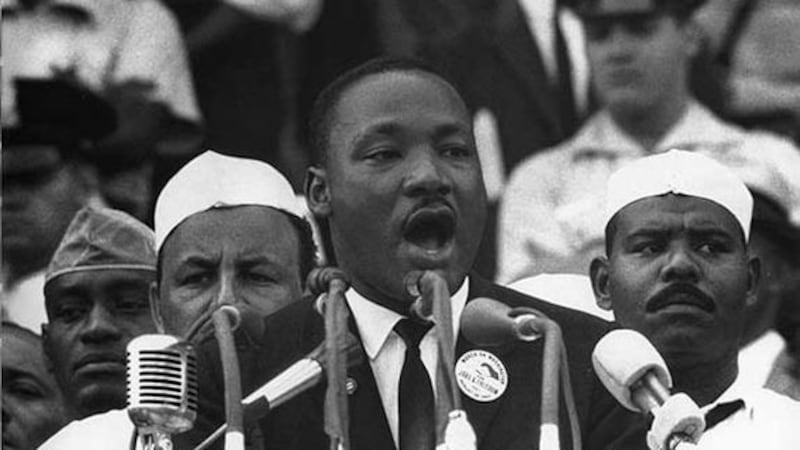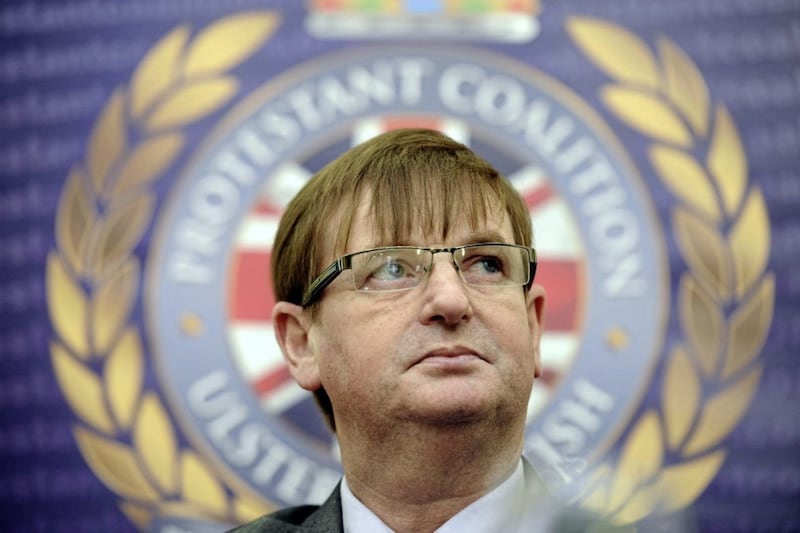THIS is the question – where are the peacemakers now in the year 2018 in a divided society in Northern Ireland?
A few years ago in Washington DC I stood on a step at the Lincoln memorial where Martin Luther King delivered his ``I have a dream speech.''
This was the third time I had stood on this place in several visits to the United States. I recalled a King quote, “life's most persistent urgent question is, `what are you doing for others?'''
This quote struck me recently when I was thinking about world figures such as King, Gandhi, Desmond Tutu and His Holiness the Dalai Lama who have been peacemakers.
As a journalist I have had the privilege to meet and have discussions with the Dalai Lama, Archbishop Tutu and Martin Luther King's niece Alveda King on visits to Northern Ireland to discuss the peace process.
Listening to a radio interview recently with Presbyterian former moderator Rev Dr Ken Newell on his close friendship with the late Fr Alex Reid from Clonard Monastery, I was moved by the huge contributions that these two local peacemakers have made.
In an earlier political generation we have had Hume/Mallon, McGuinness/Adams, Trimble, Alderdice, McWilliams and Ervine who, in their own way, contributed to peace making during the Good Friday Agreement negotiations.
Where now are the pro-active peacemakers amongst our politicians given that Stormont is no longer working?
It is true that the smoke of the gun and the bomb has by and large blown away from our society. Yet there are still dangers in the threat posed by dissidents or divided loyalist paramilitaries.
Nothing can be taken for granted and the job of peacemaking is not by any means done, but is a process.
It should be recognised that even if Stormont is not currently working the peacemaking is continuing behind the scenes particularly in community groups reaching out to each other.
This is social courage. It does not seek the limelight or the microphone but is hugely important in peace building.
But it is not easy in this small piece of earth that has so much heavy baggage historically and politically.
I put the peacekeeping question to a colleague whom I work with in the Rostrevor-based Arts a Wonder Collective which has brought together Christian, Jewish and Muslim leaders in a series of conferences.
Ian White of Changing Perspectives is originally from the north but is based in Dublin and is involved in conflict resolution work both in Ireland and overseas.
He said: ``As political and community leaders change and the current cohort live in a very different context which they have inherited from their predecessors, individual champions for peace are less obvious than with the previous generation of leaders.
``While the condition of political uncertainty makes it difficult to predict how political leaders will find a way out of our political impasses, the work of institutions and organisations such as Corrymeela, Glencree and Arts A Wonder Collective (Rostrevor) become even more important as they continue to keep our communities connected.
``Former prisoners organisations, while often aligned to political groups and while not completely sharing the same agenda as peace building organisations, are also a vital ingredient in this peace process. These organisations are the real leaders of peacebuilding in Ireland today. ''
I also asked an MA conflict resolution student at Queen's University for his thoughts on ``the peace building question.''
Fionnbharr Rodgers said: ``There has been too much complacency after the Good Friday Agreement, being such a monumental success that people thought it the culmination of the peace process, rather than a part of the process.
``We've now reached a stage where twenty years of stagnation has bequeathed the same sectarian bickering unto a new generation; combined with the Troubles fading into more distant memory, and romanticism starting to set in, it creates an atmosphere not conducive to reconciliatory efforts.''
So where to now in the peace making jigsaw?
It is June, nearly July, and the Stormont chamber lies empty.
Talk of Brexit and a border poll raises temperatures this summer.
In all of this confusion we should remember the words ...`Blessed are the peacemakers.'
:: William Graham is a former political correspondent of The Irish News.








